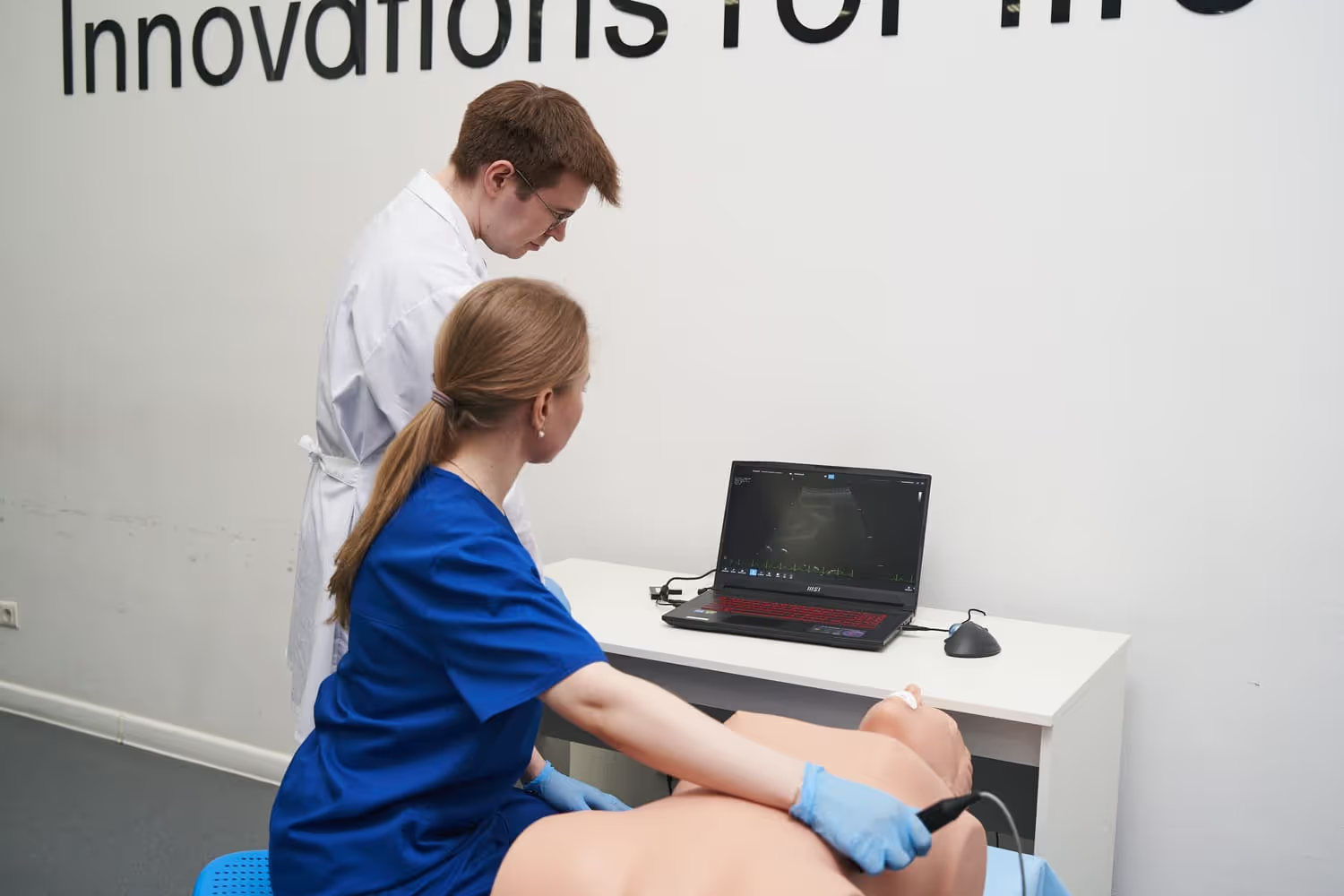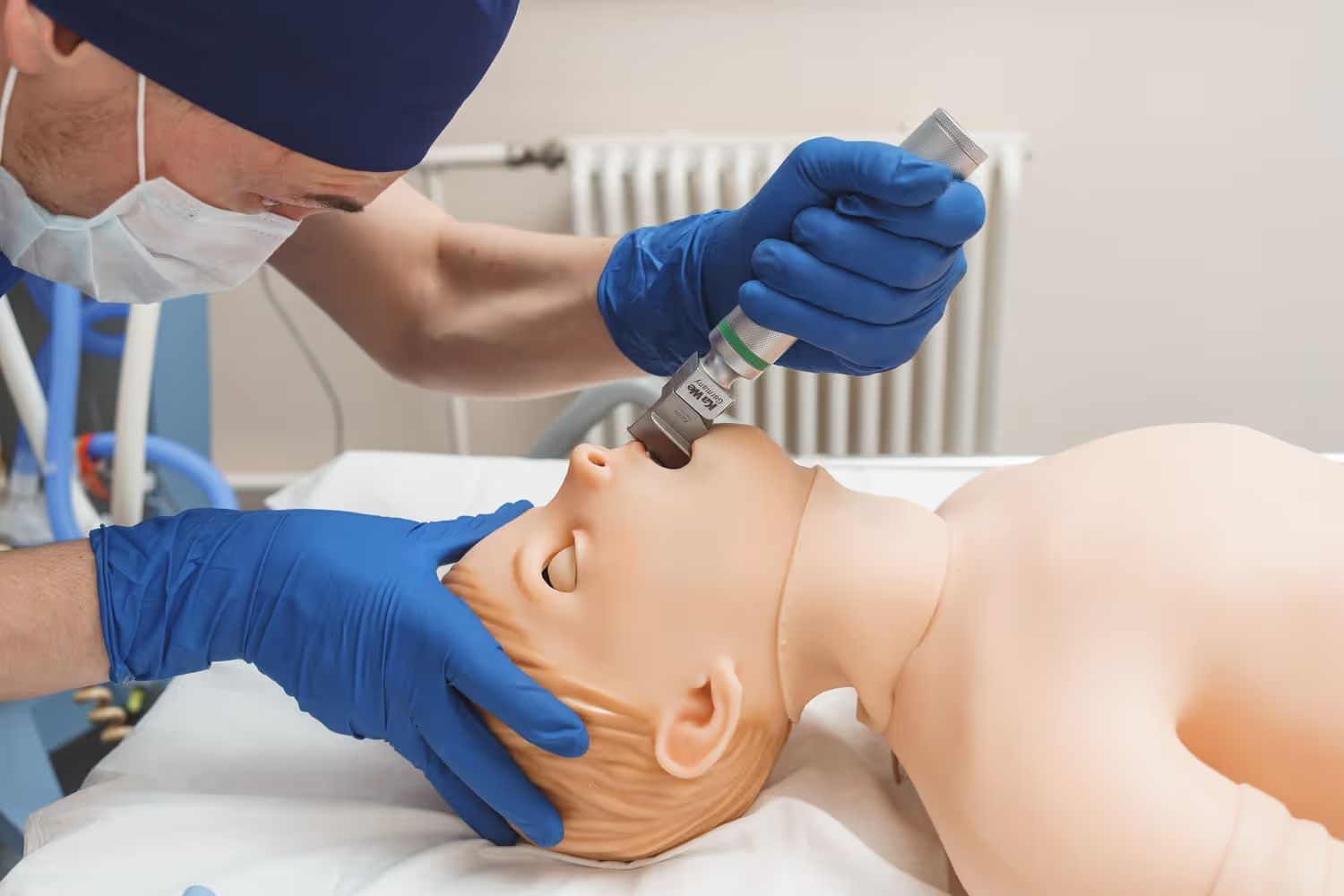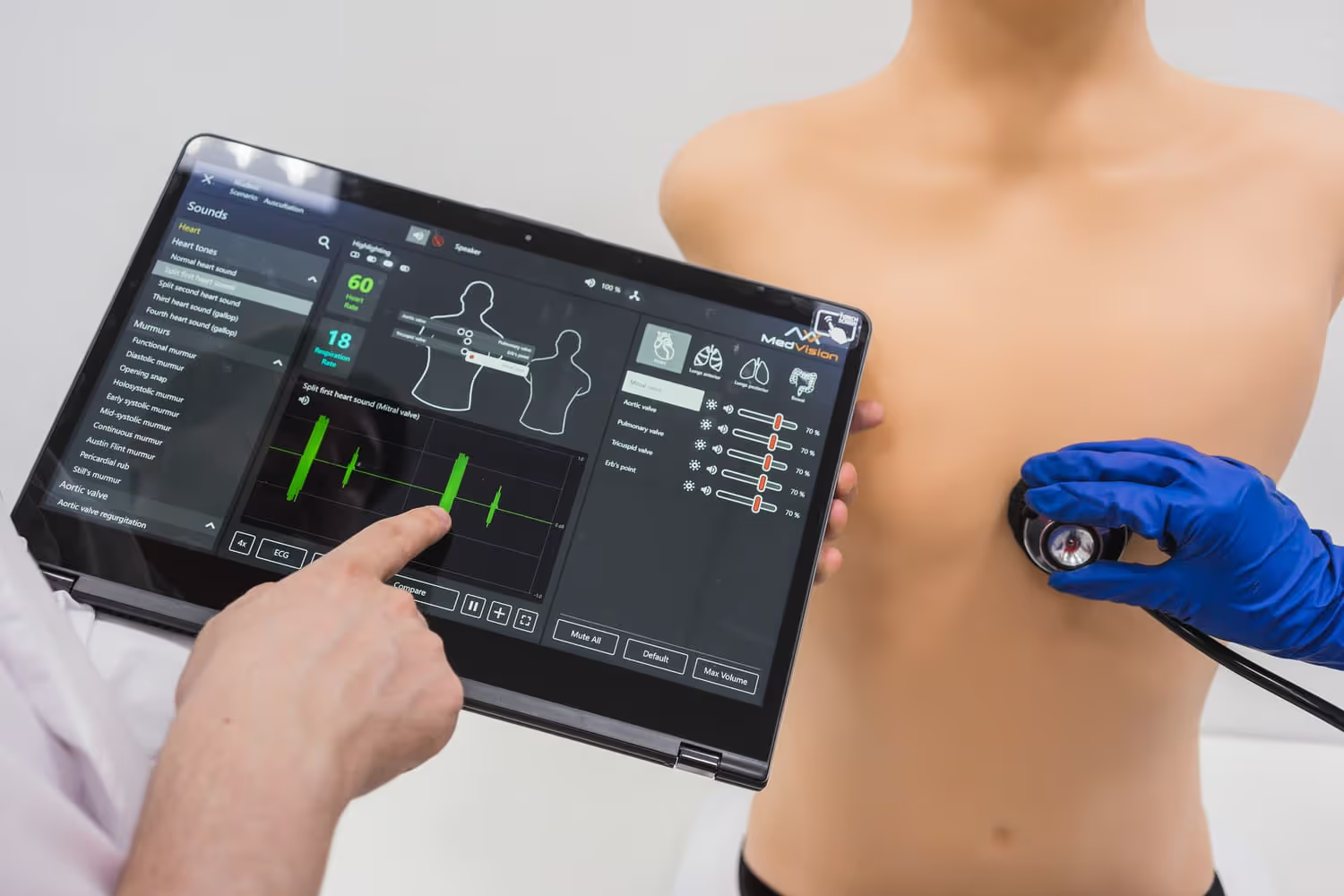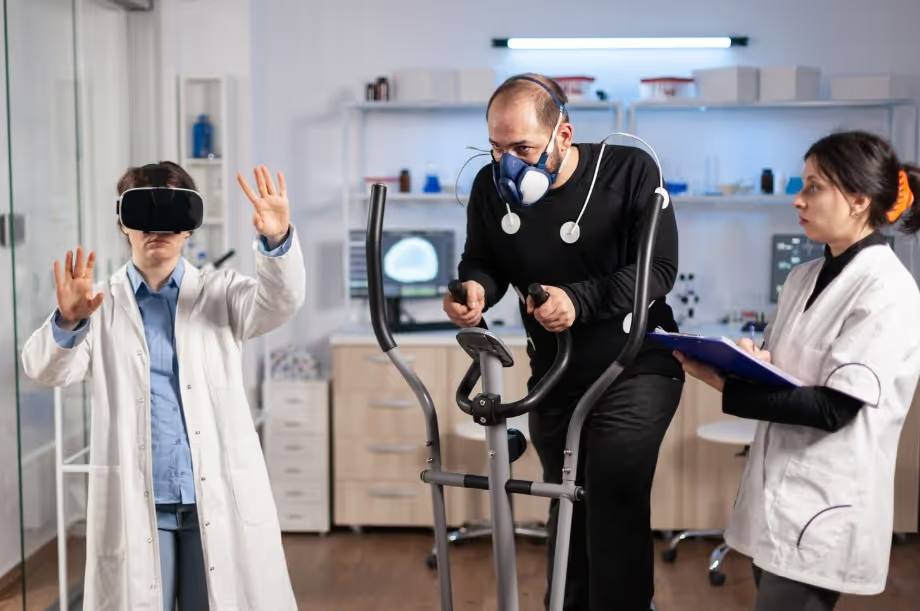
Healthcare Simulation Certification for Nursing and Medical Educators
What Is Healthcare Simulation Certification?
Healthcare simulation certification is a formal credential confirming that an individual possesses the required competencies in simulation-based education, particularly within clinical and academic healthcare environments. This certification ensures that simulation facilitators, technicians, and educators are not only familiar with high-fidelity simulation tools but also adept at deploying them effectively to enhance nursing and medical healthcare training outcomes.
The certification serves as a benchmark for excellence in an increasingly complex and technologically advanced healthcare field. With simulation now integral to healthcare training, the need for credentialed experts has never been more critical. Unlike conventional medical instruction, simulation allows learners to practice procedures, clinical judgment, and communication skills in safe, repeatable environments that replicate the dynamic reality of patient healthcare.
Why Certification Matters in the Simulation Space
As simulation becomes central to modern clinical and healthcare education, certification validates the skills required to design, implement, and evaluate learning scenarios that reflect real-life patient healthcare cases. For institutions, employing certified simulation professionals ensures pedagogical consistency and clinical relevance. For individuals, obtaining a healthcare simulation educator certification opens new doors in academic, hospital, and corporate healthcare settings.
This is particularly relevant for those teaching in nursing simulation certificate programs, where standards of instruction are rising rapidly. Certified educators are better positioned to deliver impactful training, supported by evidence-based instructional design and assessment strategies. They also demonstrate proficiency in using simulation for both formative and summative evaluation within healthcare environments.
How Nursing Simulation Certification Supports Clinical Practice
In the world of nursing, simulation is more than a technical training tool — it’s a catalyst for cultivating critical thinking, empathy, and systems-level awareness essential in modern healthcare. A nursing simulation certification ensures that educators preparing future nurses understand how to construct immersive learning environments where theoretical concepts are tested against real-time decision-making typical of healthcare scenarios.
Graduates of such programs are not merely instructors; they become architects of transformation in the healthcare sector. Certified professionals are trained to identify gaps in clinical performance and align simulation scenarios with regulatory and institutional priorities. They guide students through nuanced experiences — from maternal emergencies to geriatric decline — all without risking patient healthcare safety.
This kind of credentialing is increasingly required in nursing simulation certificate programs, many of which are now integrated into graduate curricula across North America and Europe’s healthcare institutions.
Core Competencies Covered by Medical Simulation Certification
Earning a medical simulation certification involves more than learning how to operate a manikin. It entails mastering a multifaceted skill set, including scenario design, debriefing methodologies, and interprofessional collaboration crucial to healthcare delivery. Certified individuals are expected to possess:
- Proficiency with high-fidelity simulation platforms used in advanced healthcare training
- Deep understanding of anatomical and physiological representations relevant to healthcare practice
- Expertise in facilitating learner reflection through structured debriefing within healthcare education
- Awareness of ethical and psychological implications in simulated trauma care pertinent to healthcare settings
This kind of comprehensive knowledge is indispensable when training clinicians to make time-critical decisions under pressure. Simulation certified educators are able to guide learners through life-threatening scenarios — like septic shock, neonatal resuscitation, or airway obstruction — in ultra-realistic environments that imitate the sensory, cognitive, and emotional load of the actual clinical healthcare moment.
One example is the use of advanced anatomy visualization tables, which allow students to engage with human systems in cross-section. These digital tools create a spatial and diagnostic fluency that simply isn’t possible through static textbooks or lectures in healthcare education.

Simulation Tools That Elevate Healthcare Training
To meet certification standards, professionals often train on a broad array of simulation technologies — each designed to replicate specific dimensions of clinical practice in healthcare. These range from diagnostic ultrasound simulators and interactive anatomy tables to intelligent manikins capable of simulating multi-system failure in healthcare scenarios.
Among the most transformative tools are:
- Full-body manikins with programmable responses, vital sign fluctuations, and realistic physiology used in healthcare simulation
- Virtual reality systems for procedural training in surgery, nursing, and emergency healthcare
- Ultrasound simulation platforms offering real-time anatomical feedback and variable pathologies in healthcare diagnostics
- Haptic-enabled injectors to practice needle placement, dosage delivery, and vein access relevant to healthcare procedures
These innovations empower certified educators to construct simulations that are not only medically accurate but psychologically engaging. Students interact with simulated patients that cry, seize, sweat, and speak — behaviors that demand clinical judgment and emotional intelligence alike in the healthcare environment.
The Link Between Simulation and Nursing Education
For nursing simulation certificate programs, integration of advanced simulation platforms is not a bonus — it’s a baseline requirement in modern healthcare education. Aspiring nurses must learn not only how to chart vitals or start an IV but also how to read the room: what a flushed face or delayed response time might indicate in a healthcare context. This holistic vision of patient care is best cultivated through multisensory simulation experiences within healthcare curricula.
Certified nursing educators understand how to sequence these learning moments to match learner readiness. They can modify pressure, complexity, and urgency based on clinical and healthcare objectives, whether teaching a second-year student how to manage dehydration or a final-year intern how to respond to postpartum hemorrhage.
Programs that award nursing simulation certification therefore emphasize the integration of both soft and hard skills — from communication strategies and role delineation to precision in pharmacological delivery in healthcare.
What Are the Requirements for Healthcare Simulation Certification?
Gaining a healthcare simulation certification typically involves a mix of professional experience, formal training, and assessment. While each certifying body — such as CHSE (Certified Healthcare Simulation Educator) or CHSOS (Certified Healthcare Simulation Operations Specialist) — sets its own standards, most paths require the following:
- A minimum number of hours in simulation-based instruction or technical support in healthcare contexts
- Demonstrated knowledge of simulation modalities, tools, and methodology relevant to healthcare
- Mastery of scenario development and outcome assessment in healthcare education
- Competency in debriefing, facilitation, and learner evaluation in healthcare simulation
- Evidence of continuing education in healthcare education or simulation
Some institutions also demand submission of case portfolios, professional references, or reflective essays that demonstrate pedagogical insight into healthcare simulation. These elements ensure the certification process remains rigorous and relevant to the evolving landscape of clinical and healthcare education.

Who Should Consider Getting Certified?
Simulation certification is ideal for professionals across the healthcare spectrum. While it was once the domain of academic instructors and simulation technicians, the credential is now sought after by:
- Nurse educators seeking to upgrade teaching practices in healthcare
- Medical faculty designing residency or fellowship programs in healthcare
- Simulation center coordinators and technologists managing technical systems within healthcare
- Clinical trainers in hospitals or private healthcare networks
- Curriculum developers building interdisciplinary training modules for healthcare education
The rise of remote and hybrid learning models has also led to a surge in demand for certified simulation experts who can deliver high-impact training across digital platforms in healthcare.
Consider, for instance, virtual patient avatars capable of mimicking emotional states and acute symptoms. These simulation technologies demand not only technical dexterity but nuanced instructional delivery — a skill set honed through structured healthcare simulation certification programs.
How Certification Improves Simulation Outcomes
One of the most overlooked benefits of certification is its effect on learning outcomes in healthcare education. Certified simulation educators are trained to recognize cognitive load, stage learning appropriately, and promote retention through scenario fidelity. This directly translates into:
- Improved clinical reasoning within healthcare settings
- Better procedural accuracy in healthcare tasks
- Stronger teamwork and communication skills essential to healthcare delivery
- Lower error rates in practical assessments in healthcare
- Higher learner satisfaction in healthcare training programs
Moreover, credentialed professionals are better equipped to align simulation activities with institutional healthcare goals, whether reducing patient readmissions or meeting accreditation standards.
They can also lead faculty development workshops, helping colleagues understand the pedagogical power of simulation in healthcare environments.

Integrating Simulation in Interprofessional Education (IPE)
Modern healthcare simulation certification programs emphasize the importance of interprofessional collaboration. In real hospital and healthcare settings, nurses, physicians, respiratory therapists, and pharmacists operate as one coordinated team — and so must students in simulated ones.
Certified simulation facilitators are trained to build exercises that cultivate cross-disciplinary communication, conflict resolution, and role clarity. Such IPE-focused simulation scenarios are particularly valuable in:
- Emergency response teams in healthcare
- ICU handoff simulations in healthcare
- Operating room teamwork training within healthcare systems
- Primary care coordination exercises in healthcare
This level of integration is only achievable when simulation is designed intentionally and delivered by those who understand not only the technology but also the psychology of team-based healthcare.
From Training to Transformation: The Power of Healthcare Simulation Certification
Obtaining a healthcare simulation certification is a transformative step for professionals dedicated to advancing clinical and healthcare education and patient safety. Through structured training, assessment, and practical application, certification ensures educators and operators can harness sophisticated simulation technologies and methodologies effectively in the healthcare domain.
The subtle yet powerful integration of tools like advanced anatomy tables, SonoVision ultrasound simulators, intelligent manikins such as Arthur, and the mobile MATT platform exemplifies how modern simulation elevates learning experiences — preparing nurses, physicians, and interdisciplinary teams for real-world healthcare challenges.
Ultimately, certified simulation practitioners become catalysts of change, driving improvements in healthcare quality and learner engagement alike.
Immerse yourself in a demo to see how MedVision transforms traditional learning into an engaging, interactive experience
Subscribe for the Latest News!





